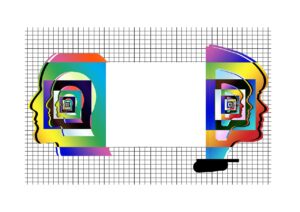When is Conflict Productive?
When you think of conflict, what are the words you usually associate with it? Fighting, anger, discomfort, hostility? Webster defines conflict as competitive or opposing action of incompatibles: antagonistic state or action (as of divergent ideas, interests, or persons); mental struggle resulting from incompatible or opposing needs, drives, wishes, or external or internal demands; the opposition of persons or forces. All of these indeed sound very negative.
In fact, we often think of conflict strictly in a negative sense. A recent study of CEOs found that fear of conflict was one of the “seven deadly sins” CEOs won’t admit to. Unfortunately, avoiding it does not help the problem to go away, and in many instances it will only serve to escalate the issue.
 But dissension can actually be a good thing. Productive Conflict, as I like to call it, can help with problem solving, improving results, keeping others accountable, etc.
But dissension can actually be a good thing. Productive Conflict, as I like to call it, can help with problem solving, improving results, keeping others accountable, etc.
We need conflict. It is an unavoidable part of workplace relationships, so we need to find a way to make it productive. We can’t and shouldn’t just wish it away. What we need to do is better understand ourselves in conflict and learn why we behave the way we do.
As Stephen Covey says in his book Seven Habits of Highly Effective People, “Seek first to understand, then to be understood.” Before we can begin to cast blame on others (“he is so defensive, she yells too much, he is hardheaded and won’t listen, she says hateful things”) we need to know what we are doing that increases the tension in a conflict situation. A great way to start is to understand our own personalities.
I am an advocate of the DiSC family of assessments. Knowing your DiSC style is a great way to begin understanding how you react during dissension. Let’s take a look at some of the destructive behaviors of the DiSC styles in conflict:
D – impatience, creating win-lose situations, overpowering others
I – overly emotional, talking over others, making personal attacks
S – withdrawing, giving in to others, letting issues simmer beneath the surface
C – become defensive, passive-aggressive tactics, overanalyzing situations.
Own your personality; get to know what destructive behaviors you contribute that escalate conflict in a negative way. Then work on adjusting in order to make conflict a more positive, productive experience.
To take the DiSC workplace personality assessment, contact us!

